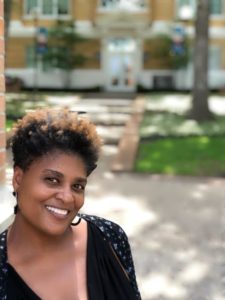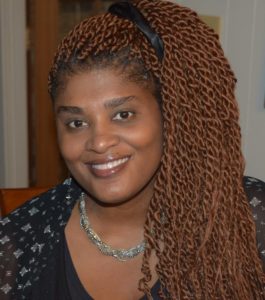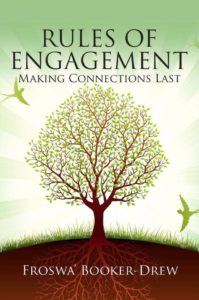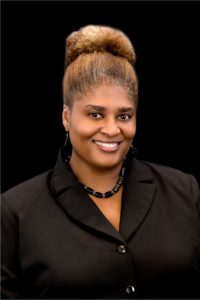Welcome to Day 2 of Amplify Black Voices in Publishing!
When I sent out the invitation to subscribe to the “Amplify Black Voices in Publishing” series, I was short one interviewee. When a reader of my newsletter responded, our back and forth emails led me to realize, she would be a wonderful person to interview for the series. Before this, I had not known her or known she was on my email list, nor did I know about her groundbreaking work. The author of three books, a TEDx presenter and educator. Dr Booker-Drew has deep insights into this issue of how to amplify Black voices in publishing.
 And, as a side note, from my experience, perhaps your personal and professional circles are also more diverse than you realize! Reach out to your readers and get to know them. Our readers have as much to teach us as we have to teach them.
And, as a side note, from my experience, perhaps your personal and professional circles are also more diverse than you realize! Reach out to your readers and get to know them. Our readers have as much to teach us as we have to teach them.
Without further ado, here is my interview with Dr. Froswa’ Booker-Drew, three time author, TedX speaker and activist.
[bctt tweet=”Amplify Black Voices: Recommended Reading” username=”LisaTener”]
Lisa: When it comes to understanding racism: history/how we got here, uncovering our own unconscious biases, learning what we can do in terms of our own behaviors as well as contributing to societal, legal and institutional change, what books or blogs do you recommend reading?
Dr. Booker-Drew: I recently wrote a Facebook post that was published in a blog that offers some insight not only on my personal experience but offers suggestions.
Dr. Booker-Drew: I would also encourage folks to read the work of Ibram X. Kendi, Layla F. Saad, Tim Wise, and books like Black Fatigue which has been recently released.
And tap into resources such as What Can White People Do and Dismantling Racism and White Supremacy.
Lisa: Your 7 tips are excellent and I encourage readers to read them! As well as the additional free downloads you mention from Network Weaver, the latter being an excellent list of books and resources to dismantle racism and White supremacy.
A note about links to buy books
Note: Rather link to books on Amazon, here is a link to a recent list of Black-owned bookstores that ship nationally. You can use the stores on this list to order the books mentioned in this post.
Doing Our Part to Amplify Black Voices
Lisa: As writers, how can we best use our voice and platform to Amplify voices of African Americans and other Black people?
Dr. Booker-Drew: In order to amplify, it’s important to understand what you are providing voice to. Reading the work of Black authors is critical in order to share and highlight our voices.
- How can you use your platform to assist?
- Is it allowing space for someone to guest post on your blog or column?
- Is there an opportunity to co-author?
- Examine your team. Are there opportunities to add to your staff editors, copywriters, illustrators, etc. to create spaces for new voices from the Black community? As authors and bloggers, what can we do better to uncover our own unconscious biases and write inclusively? What questions should we ask ourselves before pressing “publish” on a blog post or submitting our chapters to our publishing house?
 Relationships are important. Think about those in your circle that are Black or other people of color that can serve as an editor, reviewer of your materials and can offer honest, insightful feedback from a unique cultural lens.
Relationships are important. Think about those in your circle that are Black or other people of color that can serve as an editor, reviewer of your materials and can offer honest, insightful feedback from a unique cultural lens.
It’s important to recognize that our social networks influence the way we see the world. For many of us, we are amazing at bonding social capital—we connect to individuals who are just like us. It’s familiar. We must strive as authors to become intentional about building bridging social capital.
We must be willing to connect to those who are different in race, thinking and perspectives. We miss out on so much information that can inform and even transform our lives when we are open to moments of cognitive dissonance. Instead of becoming offended and retreating, we must begin to wrestle with ideas that are different from our own, especially from those whose ideas are not often presented at the tables you are privy to. As authors and bloggers, begin to examine your networks both personally and professionally.
In doing so, I believe your writing will reflect your experiences. I talk a lot about this in a recent TEDx Talk, Proximity+Presence: Social Capital and Polarization
Lisa: I love the talk, and your point that, while it’s “natural” to want to retreat from opinions that are different from our own, we need each other more than ever before and we need to…. And I enjoyed hearing about your upbringing, your dad’s restaurant and what that restaurant did for your world perspective.
Finding Diverse Beta Readers
Lisa: Some of our readers may not have a wide or diverse social circle. If they want to reach out to gather a more diverse group of beta readers, do you have suggestions for how they can find appropriate beta readers?
 Dr. Booker-Drew: It is amazing how the power and potential of Black spending and readers can be minimized and dismissed. This is a powerhouse of opportunity for collaboration! Groups like Well-Read Black Girl have 237k+ Instagram followers. Depending on your audience, there are several groups on social media that would serve as great thought partners. Reach out to Writers of Color on Twitter to post the opportunity. There are several Black Book Clubs to consider as well like Mocha Girls Read or this list of clubs on Blavity and another list of Black book clubs around the country. Using MeetUp.com is also a wonderful opportunity to reach out to diverse groups to serve as beta readers.
Dr. Booker-Drew: It is amazing how the power and potential of Black spending and readers can be minimized and dismissed. This is a powerhouse of opportunity for collaboration! Groups like Well-Read Black Girl have 237k+ Instagram followers. Depending on your audience, there are several groups on social media that would serve as great thought partners. Reach out to Writers of Color on Twitter to post the opportunity. There are several Black Book Clubs to consider as well like Mocha Girls Read or this list of clubs on Blavity and another list of Black book clubs around the country. Using MeetUp.com is also a wonderful opportunity to reach out to diverse groups to serve as beta readers.
Lisa: How can the publishing industry do a better job of getting established authors of any background to mentor and sponsor aspiring African American authors and help them get published?
Dr. Booker-Drew: The publishing industry has to really think about the entire ecosystem including those in leadership as well as the staff. Until there is a deliberate plan to address inclusion to hire more diverse staffing and a desire to broaden their base of readers, we will continue to have issues with getting Black authors and other authors of color publishing opportunities.
The number of Black authors who are given opportunities to publish is limited and even the advances offered are not equal to those of their White counterparts. The recent articles in Vulture and in the New York Times demonstrate the problems that the industry needs to address. I have struggled since the beginning of this year getting a book on changing the narrative in Philanthropy published. I have had more rejections for this timely topic that I’ve decided to publish parts of the book as a series of articles in major publications instead. I have been fortunate to have the assistance and support of Margot Starbuck throughout the process and we’ve both been baffled by it all.
What Can We Do Better in Publishing and as Individuals?
Lisa: When you wrote and published your book, did you feel you had the support you needed or were there ways in which “the system” and the field of publishing didn’t work or didn’t support you as a Black woman? If not, what would you have hoped for? What can we do better?
 Dr. Booker-Drew: When I wrote my first two books, it was a hybrid between self publishing and a traditional publisher through Austin Brothers Publishing. I learned a lot through that process. My third book I decided to go with a publishing company, Giant7 Media, that was owned by a woman of color, Cherie Banks. I received enormous support and guidance in a way that was different than I had in the past.
Dr. Booker-Drew: When I wrote my first two books, it was a hybrid between self publishing and a traditional publisher through Austin Brothers Publishing. I learned a lot through that process. My third book I decided to go with a publishing company, Giant7 Media, that was owned by a woman of color, Cherie Banks. I received enormous support and guidance in a way that was different than I had in the past.
Terry Austin was great to work with but Cherie offered such a holistic experience and the process was not just about publishing a book—she was interested in the totality of my experience as an author. It was about amplifying my voice and developing a brand I could be proud of through the book, website, newsletter and speaking.
Many of my friends as well have not had access to traditional publishing houses and as a result, we must find non-traditional routes to tell our stories. I spent so much time doing promotion for my book by trying to position myself as a thought leader. It felt like another job!
Getting quoted in Forbes, Ozy, Bustle, Hufffington Post and other major publications has been helpful but that isn’t always available for most. It’s been a lot of work and I wish I had more support, access and opportunities but I couldn’t get in the door so I had to create and open doors that I hope one day won’t be the case for others.
Lisa: I’m glad you persisted. And thank you for sharing how people in the publishing industry—authors, agents, publishers and others—can do our part to Amplify Black Voices.

Read our other interviews in the “Amplify Black Voices in Publishing” series interviews with Gael Sylvia Pullen, Ali Raja, MD and Dr. Tiffany Love.
Dr. Froswa’ Booker-Drew is the author of three books, Rules of Engagement: Making Connections Last; Ready for a Revolution: 30 Days to Jolt Your Life and Fly Away. She is currently Vice President of Community Affairs at the State Fair of Texas.


